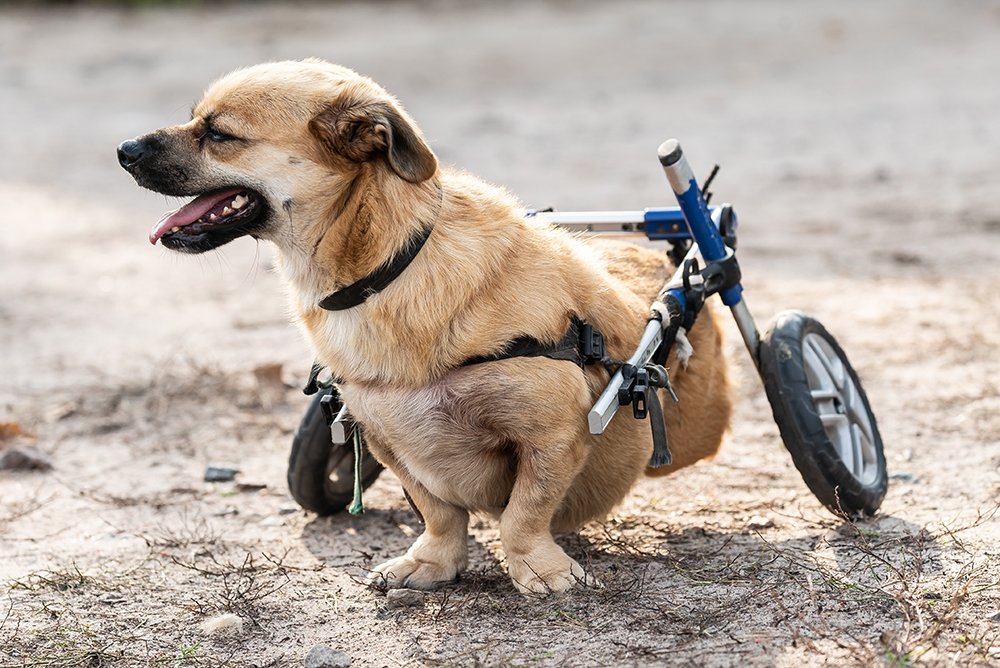How to Assess Quality of Life for a Paralyzed Pet

How to Assess Quality of Life for a Paralyzed Pet

Caring for a paralyzed pet is a commitment that requires love, patience, and some tough decisions along the way. It can be heart-wrenching to see your beloved companion struggle with daily activities. If you’ve started to question whether your pet’s quality of life is still intact, this guide is here to help. We’ll walk you through what to look for, what questions to ask, and how to make decisions that will ensure your pet’s dignity and comfort.
For those facing these decisions, compassionate solutions like in-home euthanasia in Jupiter, FL, services are available to make these difficult moments more peaceful.
Why Regular Quality of Life Assessments Matter
Paralysis can significantly impact a pet's daily life. Whether caused by injury, aging, or degenerative conditions, paralysis often makes even the simplest tasks a challenge. Regular assessments can help ensure your pet does not endure unnecessary suffering and continues to experience a meaningful quality of life.
Pets rely on us for their comfort and care. Performing regular life assessments can help you make informed and loving decisions. While this is never an easy task, understanding what to prioritize can lighten the emotional load.
Key Indicators of Quality of Life
Here are the primary factors to evaluate when assessing your paralyzed pet’s quality of life.
Physical Health and Pain
- Mobility
Can your pet move independently? While wheelchairs and mobility aids can improve their movement, some pets may find these tools burdensome over time. If they’re constantly frustrated or unable to adjust, this could be a signal of discomfort.
- Appetite and Hydration
A healthy appetite is a good sign your pet still enjoys life. On the other hand, a drop in their eating and drinking habits might indicate pain or underlying sickness.
- Pain Levels
Chronic pain is one of the hardest aspects for paralyzed pets to endure. Look for signs like restlessness, whimpering, or excessive licking of certain areas. If pain persists despite treatment, it may call for a deeper discussion with your veterinarian.
Emotional Well-being
Pets thrive on connection and joy. Pay attention to their interactions, preferences, and mood:
- Engagement with Family
Does your pet still wag their tail when greeted? Do they seem excited during playtime or when you approach? If these levels of engagement diminish significantly, it may signal emotional stress.
- Stress and Anxiety
Restlessness, pacing, or separation anxiety could be indicators that paralysis and its associated challenges are severely impacting your pet’s emotional wellness.
Basic Needs and Care Requirements
Caring for a paralyzed pet often requires extra effort to meet their daily needs. However, when animals begin losing control of bladder and bowel functions or relying heavily on caregivers for every aspect of life, it’s worth considering if they’re still living with dignity.
It is okay to feel overwhelmed by caregiving responsibilities. Paralyzed pets often develop bed sores, skin infections, or hygiene-related illnesses due to immobility or frequent accidents.
Tools to Help with Quality of Life Assessments
Some owners find it helpful to use frameworks or scoring systems to evaluate their pet’s current quality of life.
One widely recommended tool is the HHHHHMM Scale, developed by Dr. Alice Villalobos, a veterinary oncologist. Each category in the scale is scored from 1 to 10, where 10 represents the best possible condition.
The categories include:
- Hurt (Pain levels)
- Hydration
- Hygiene (Skin, coat cleanliness, and comfort)
- Happiness
- Mobility
- More Good Days than Bad Days
If your pet scores low across multiple categories, it might be time to have an honest and understanding conversation with your vet.
Considering In-Home Euthanasia
When facing the devastating moment of saying goodbye to your pet, in-home euthanasia offers a compassionate alternative to traditional clinic visits. Services like these allow pets to pass away peacefully in the comfort of their own home, surrounded by those they love.
Advantages of In-Home Euthanasia
- Familiar Environment
An at-home setting helps remove the stress of transportation, thereby creating a calm, reassuring environment for your pet’s final moments.
- Personalized Care
Veterinarians who provide these services are often specialized in end-of-life care, offering understanding, empathy, and guidance every step of the way.
- Peace for the Pet and the Family
Witnessing your pet’s passing handled with dignity can be deeply comforting, knowing their transition was as peaceful and loving as possible.
When and How to Make the Decision
Deciding on euthanasia is one of the hardest choices a pet owner will face. Here are some steps to guide you through the process:
- Consult Your Vet
Speak openly with your veterinarian about your pet's condition, their comfort level, and the practicalities of continued care.
- Rely on a Support Network
Talk to family, close friends, or support groups of pet owners who’ve faced similar situations. Their experiences may offer valuable insights.
- Trust Your Instincts
Often, you know your pet better than anyone else. Trust your sense of their behavior, personality, and shifts in their well-being.
A Compassionate Goodbye with Rover Veterinary Care
If you’re considering in-home euthanasia in Jupiter, FL, Rover Veterinary Care provides specialized services designed to ease your pet’s transition with care, dignity, and compassion.
Losing a loved one is never easy, but ensuring they have comfort and love until their final moments is one of the greatest gifts you can give them.
For more guidance or to explore our services, contact Rover Veterinary Care. Our team is here to support you and your pet every step of the way.
